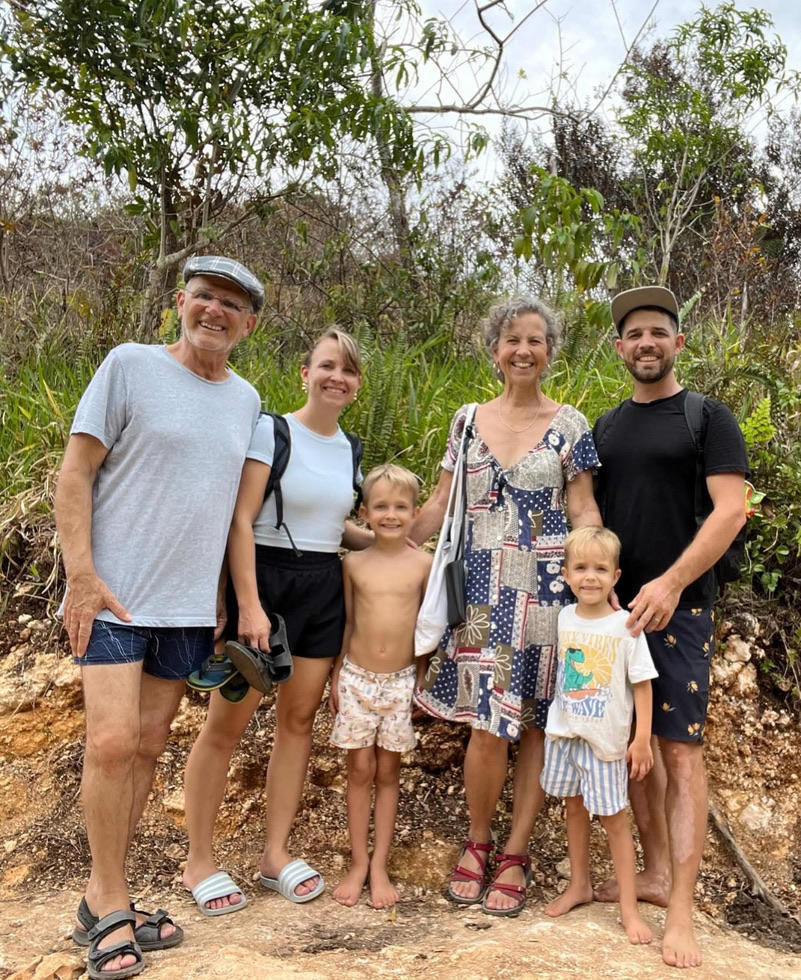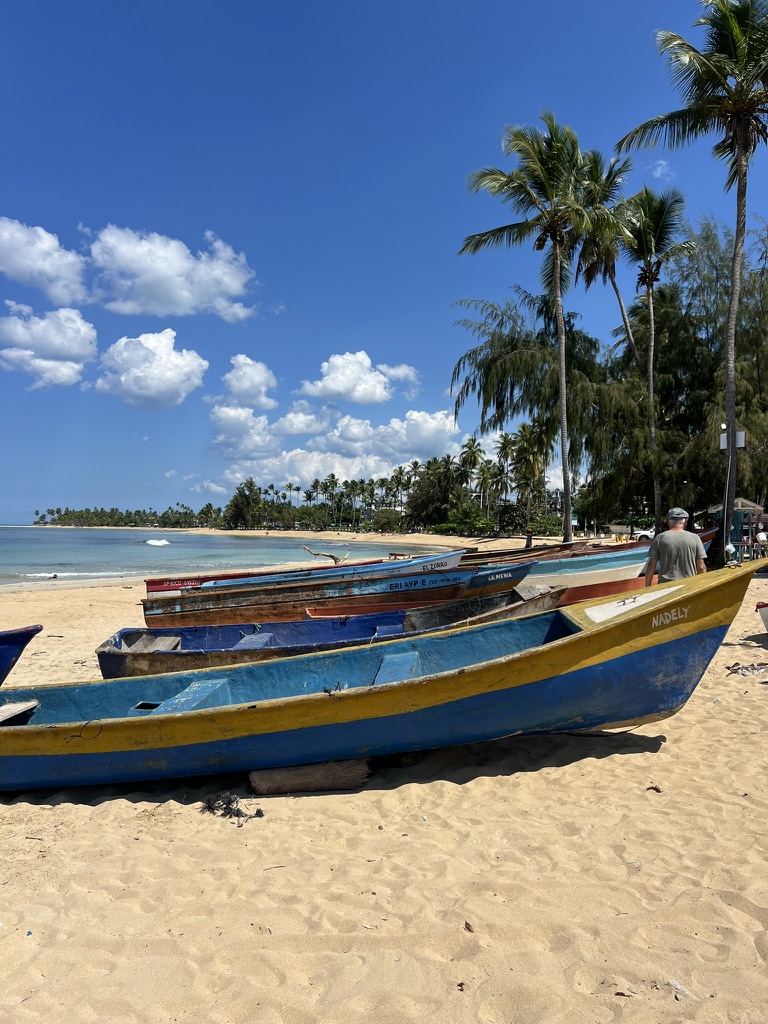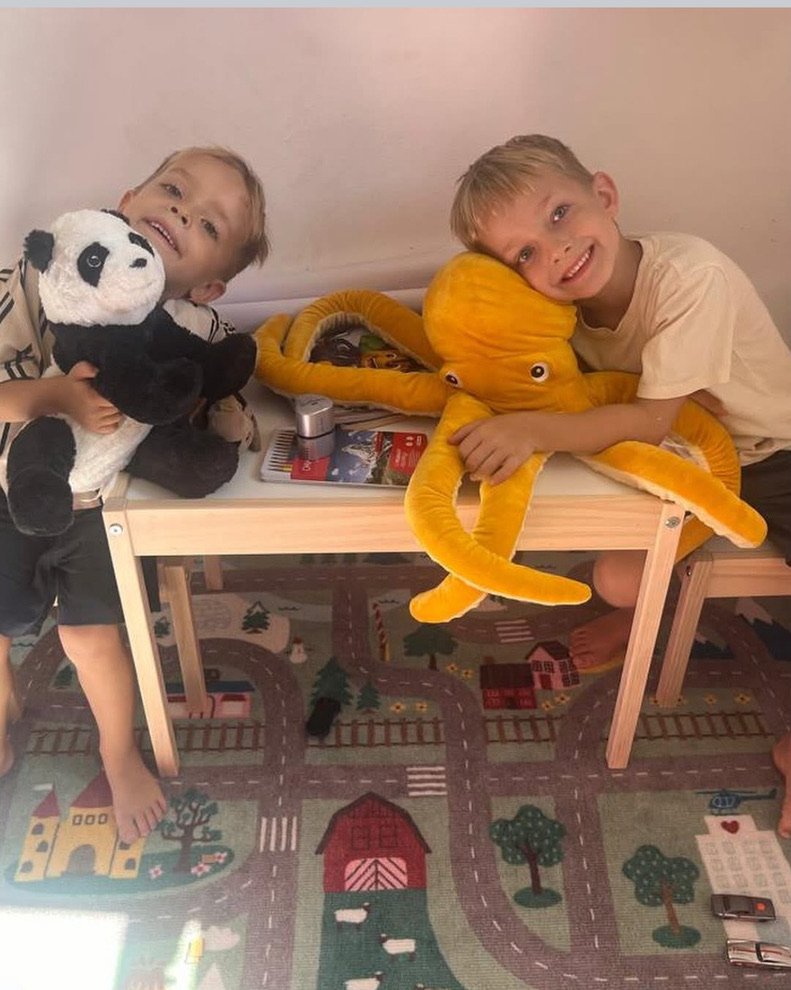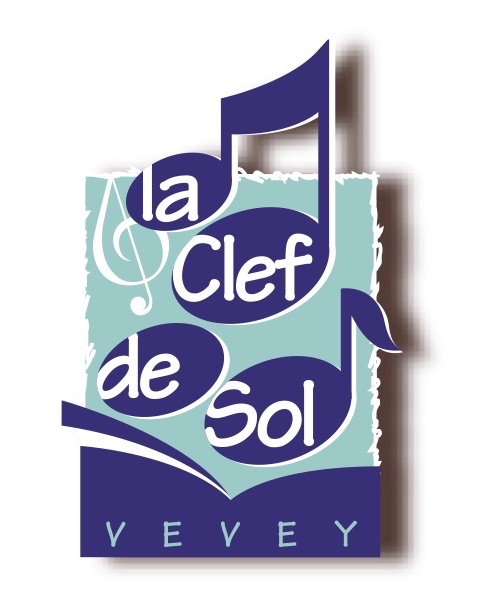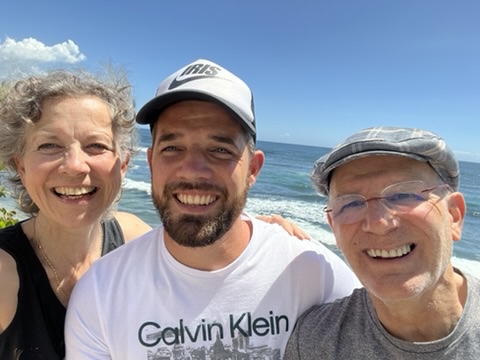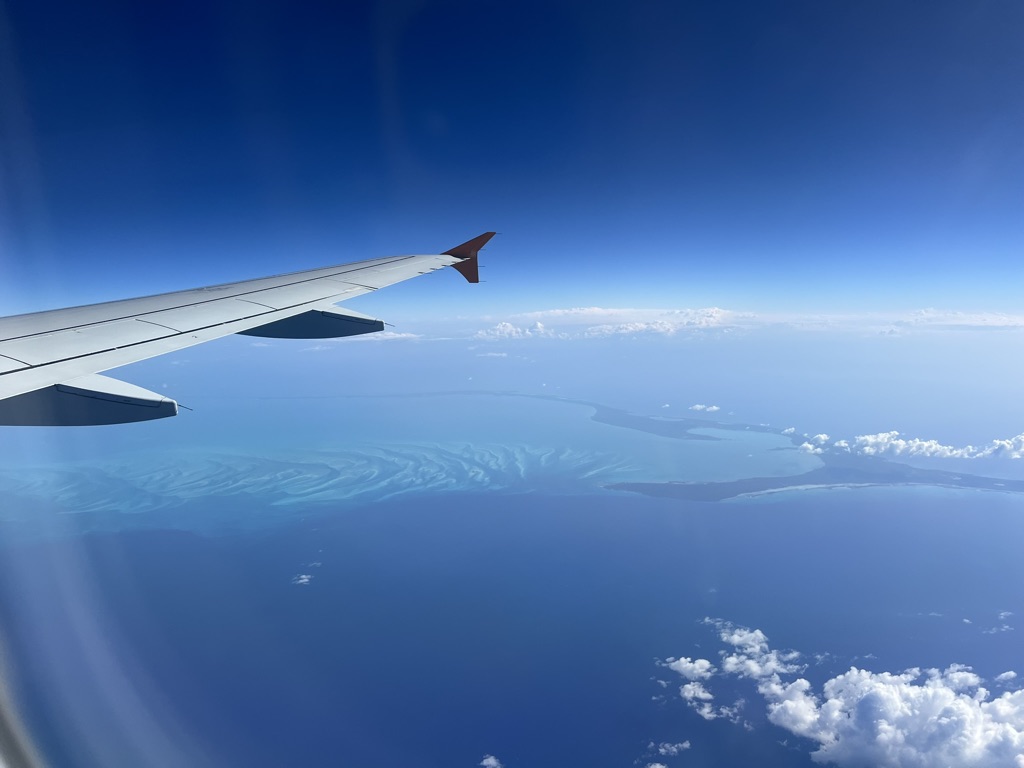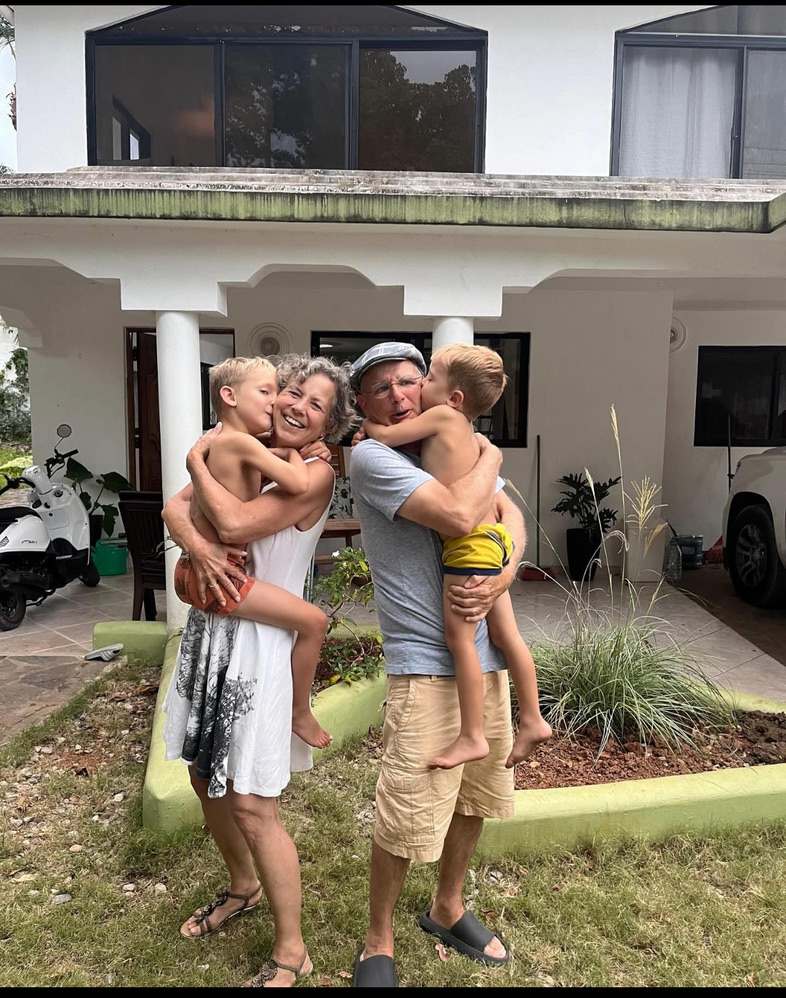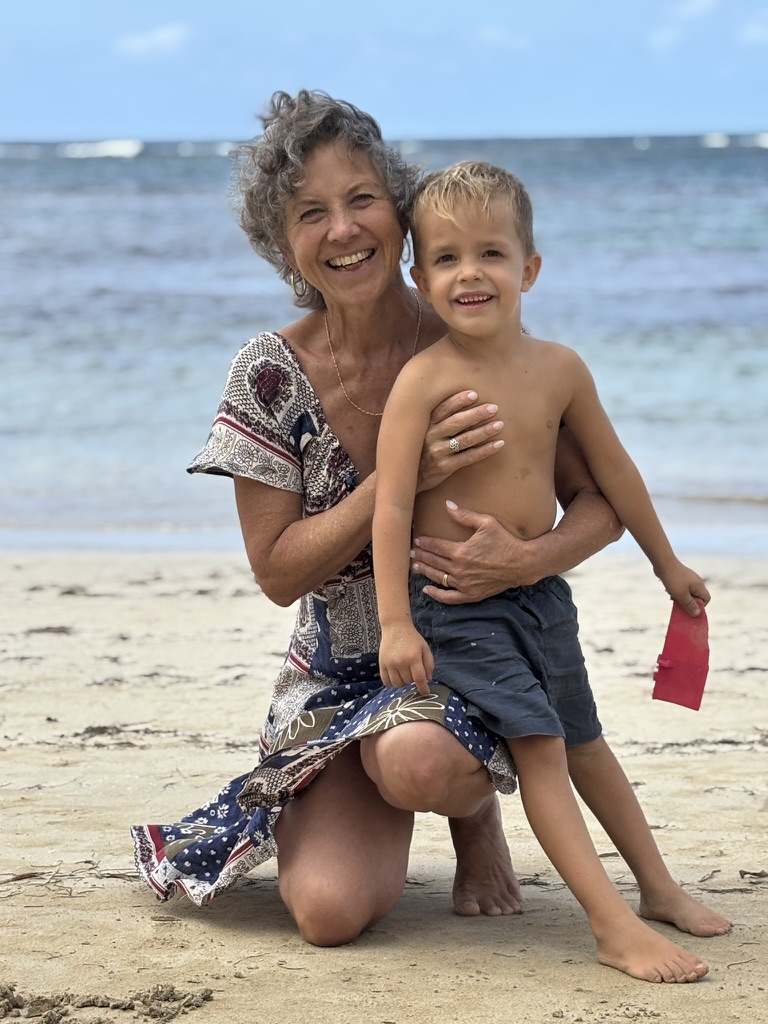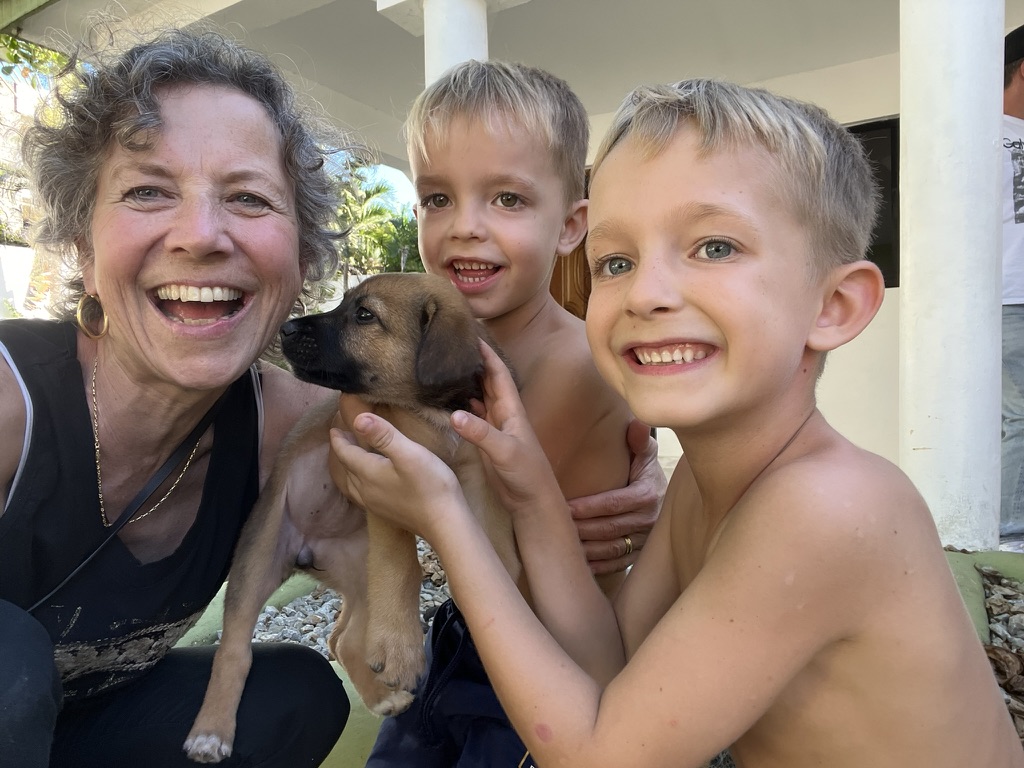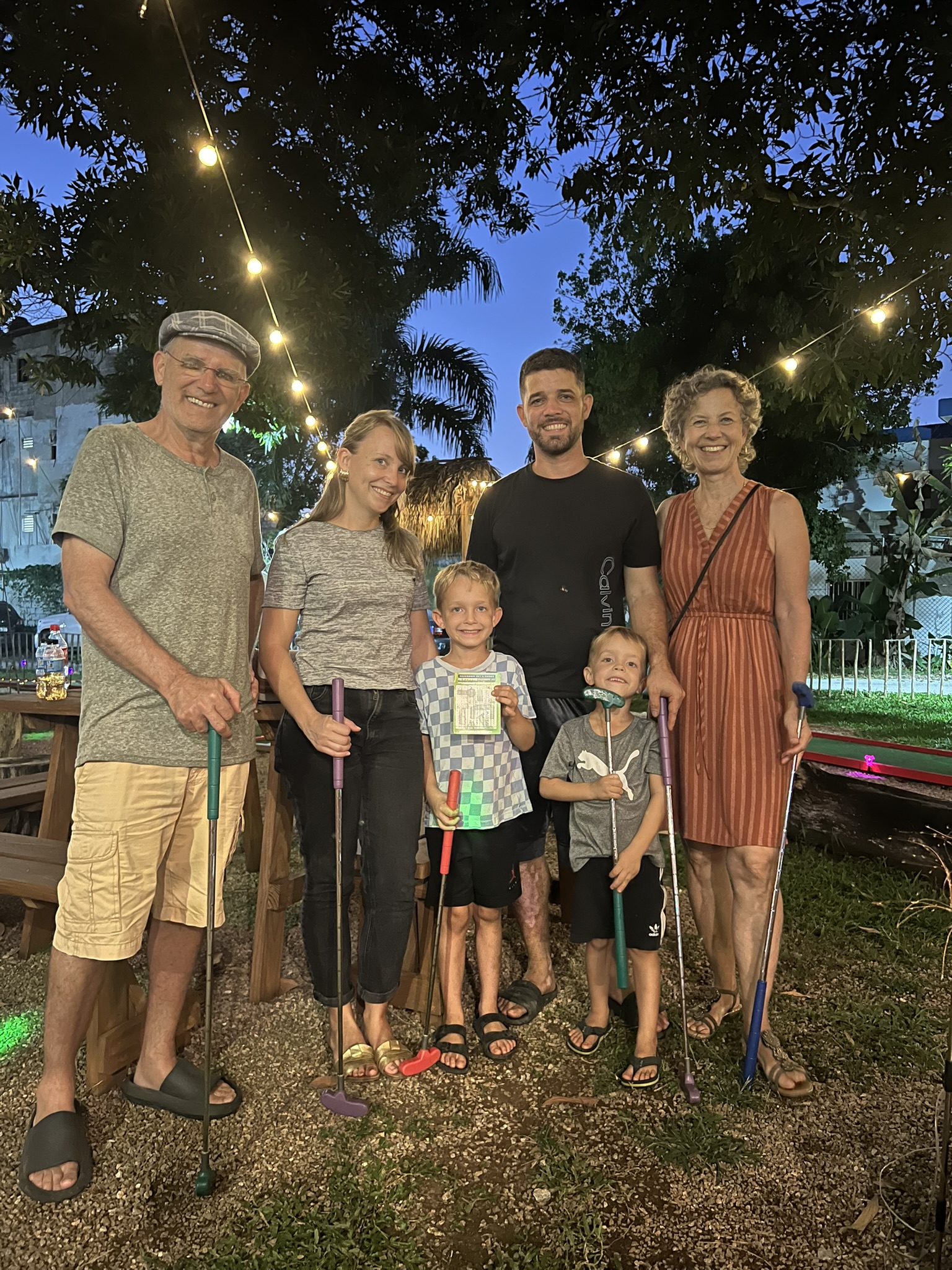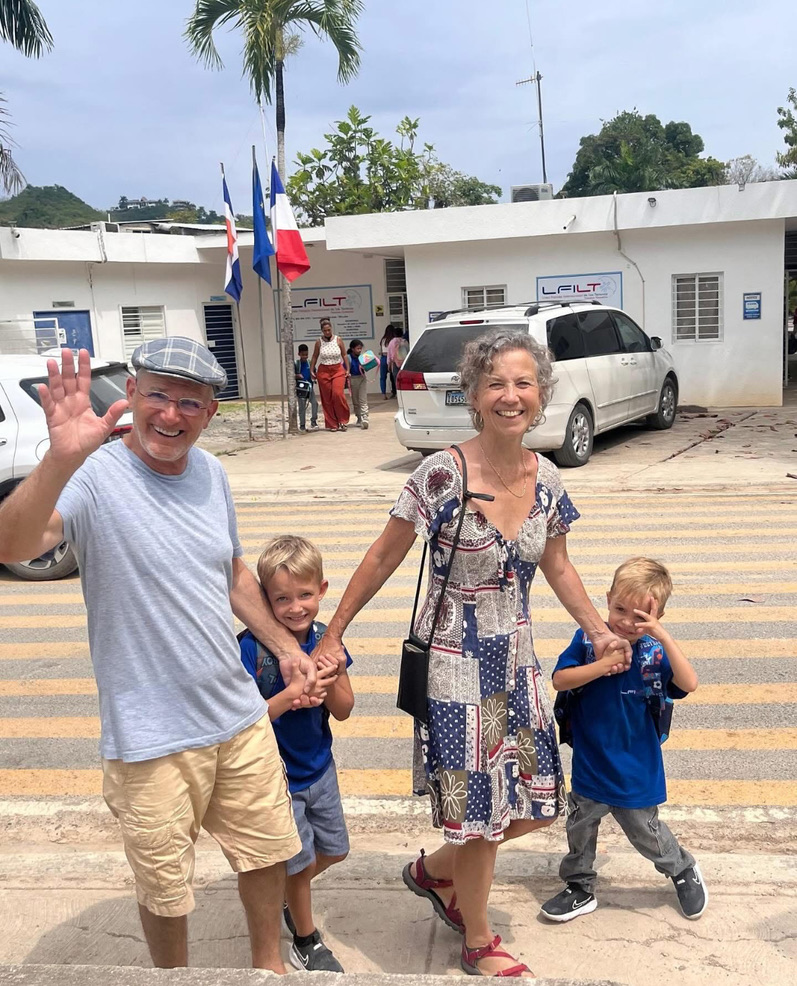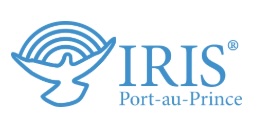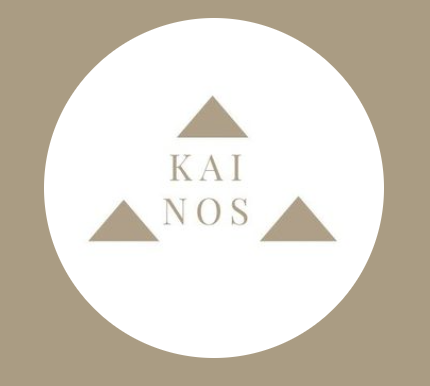VISITE
Reunion with Jonathan & Flore, Esaya and Liam in the Dominican Republic.
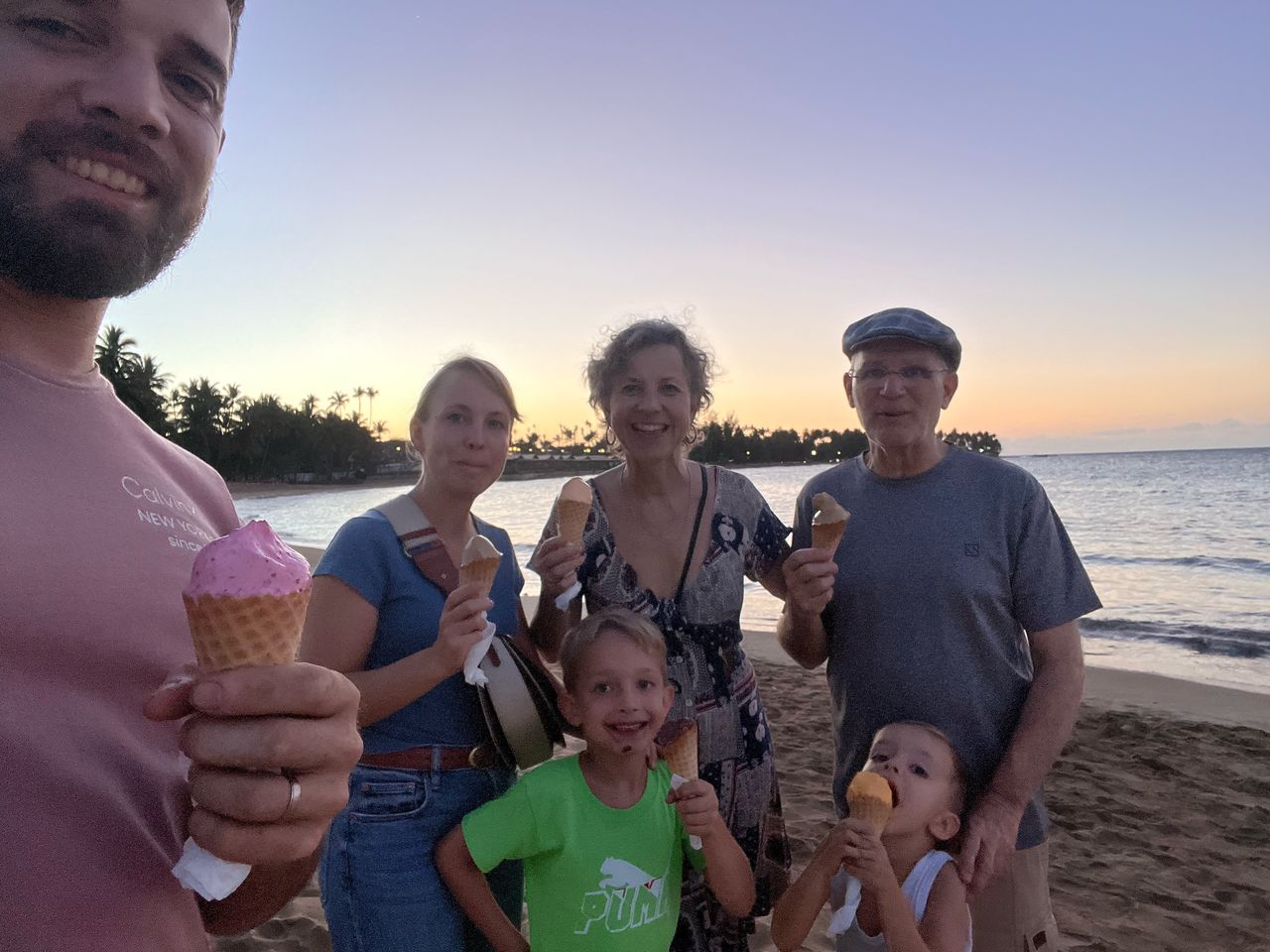
DOMINICAN REPUBLIQUE
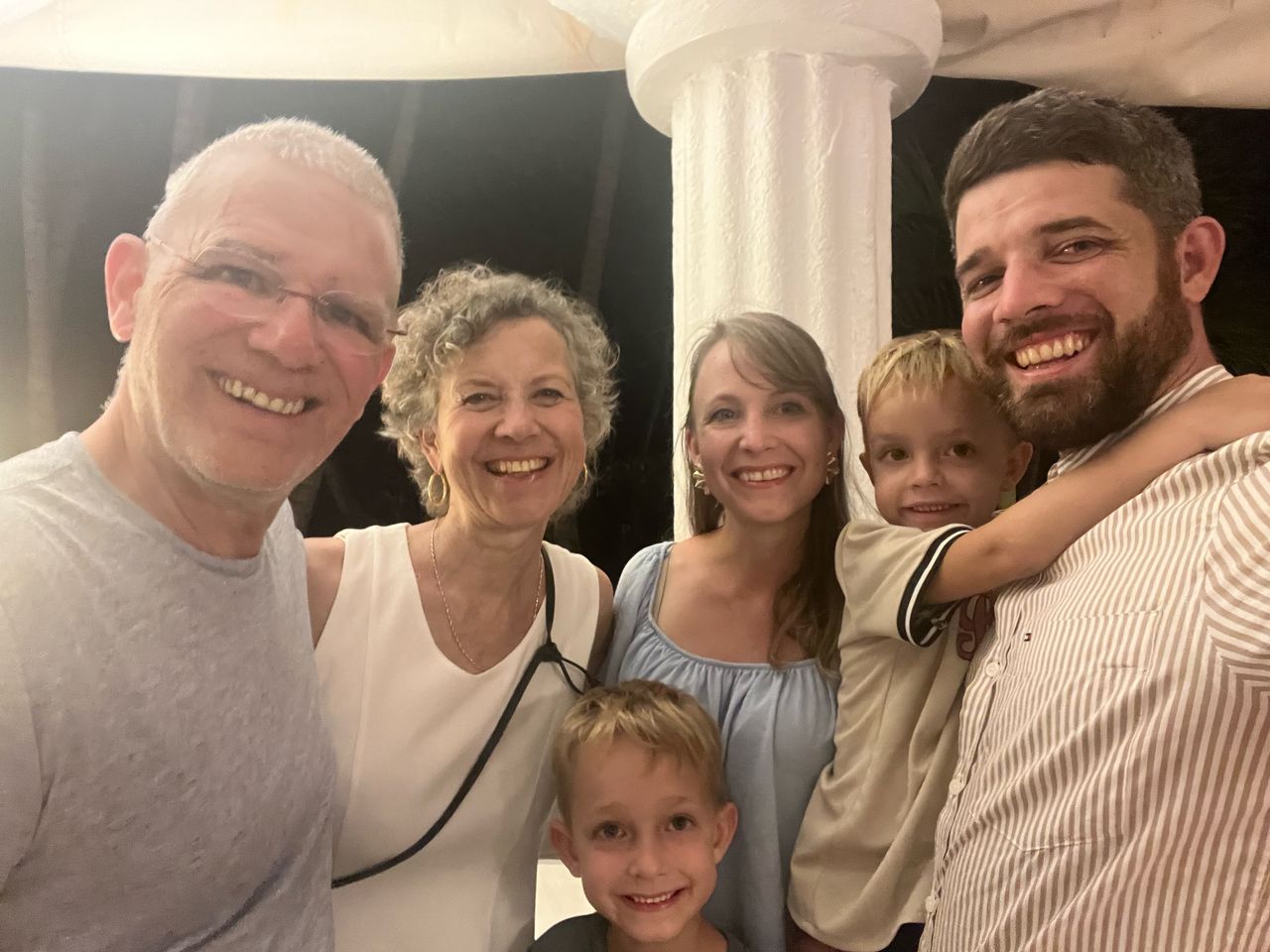
NEW DEPART
Las Terrenas
When we arrived on the morning of February 28, Jonathan and Flore had just moved into a house six days earlier. By the end of the day, Flore had found a second double bed on the Internet, just a few yards from the house! Since then, everything has been happening at a frenetic pace. By turns plumber, electrician, mason, decorator, landscaper, handyman and treasure hunter, Jonathan & Flore have been busy in an abandoned house for some time. They’ve already done a lot of work to make the place welcoming for our arrival, and yet the house still feels empty! But our hearts are filled with happiness! And over the next two weeks, the place was transformed. Every day we were able to help them equip their home a little more.
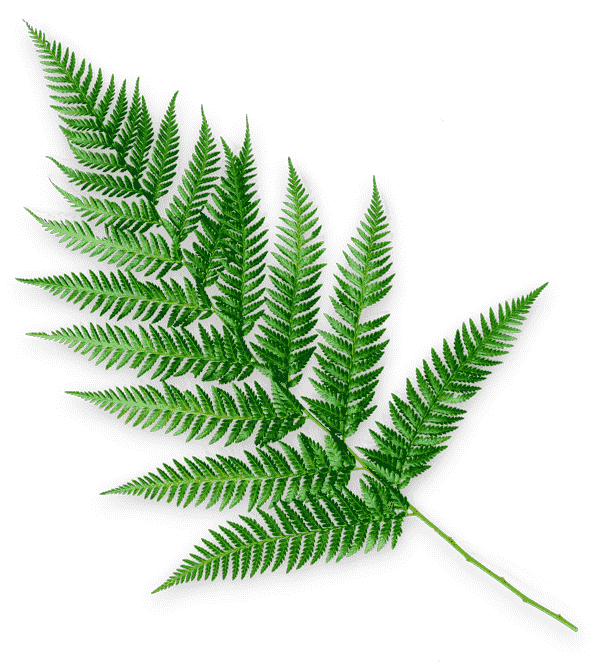
Kainos
Jonathan & Flore are in constant contact with their teams in Kainos. A huge advantage: same island, same time zone, which makes things a lot simpler; and surprise, there are a lot of Haitians in this part of Las Terrenas. It’s impossible to go to the store, the café or the beach without Jo and Flore speaking Creole. It’s almost always the same surprise for them to see white people speaking their language.
Weeping together
Spending that first week together, we realized that this is the first home in ten years that Jo, Flore, Esaya and Liam have occupied just the four of them. A house with 4 bedrooms, a large dining room where they are keen to welcome other missionaries. With a straw prayer hut in the garden, they’re already imagining what’s next… We spent some quality time with each of them. But first, we shared a time of weeping. Astrid received the message that God was weeping with them in the face of so much destruction, injustice and darkness in Haiti.
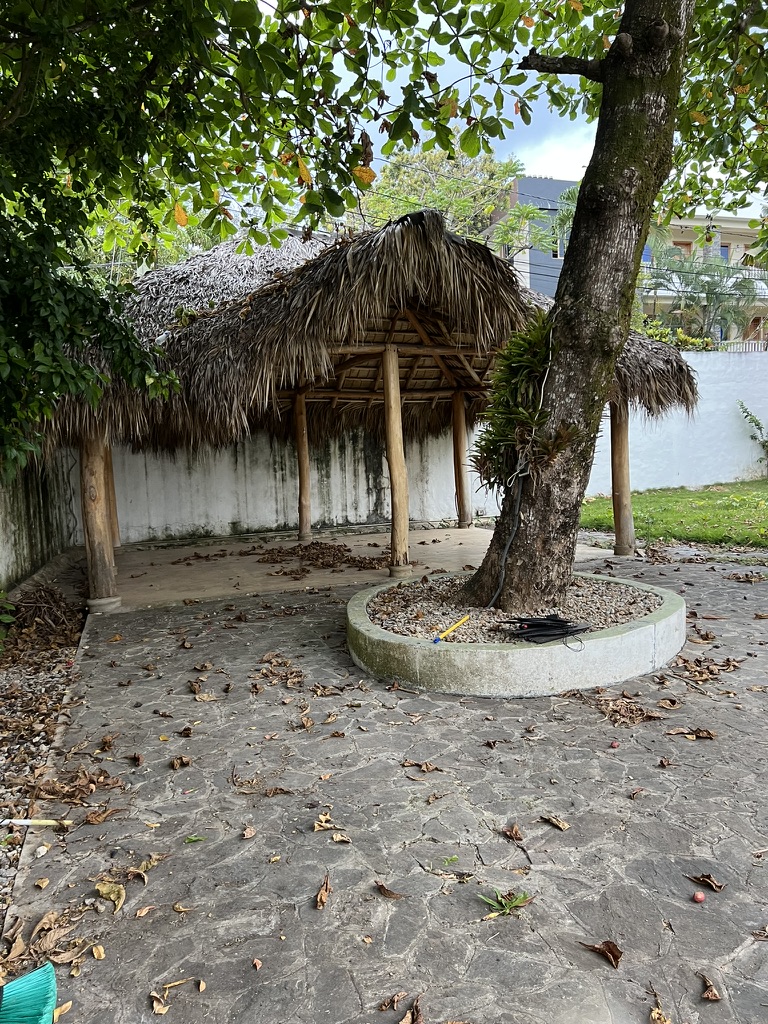
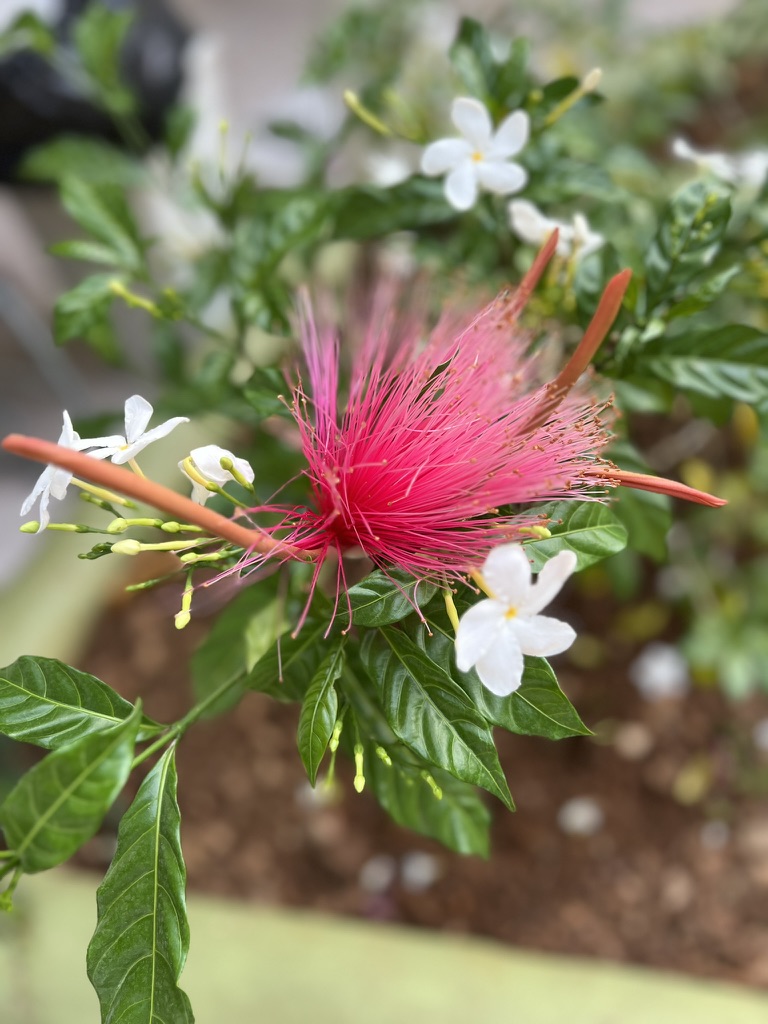
Choice
strategic
There are many similarities between the two countries, except that here you don’t risk your life on every street corner; there are no people starving to death. You can leave your house at any time.
For Jo, Flore and the children, their home is Kainos, it’s Haiti. Their hearts remain there, but the border and airport are closed. It’s impossible to go back!
But here, they have to start all over again. They had to start almost from scratch. Making friends, acquaintances. Equipping a house while all their belongings remained in Port-au-Prince. No vehicle, no crockery, pots and pans, no furniture… but they have a roof over their heads and all their enthusiasm. They are very close to Kainos, where contacts are more than daily as gangs gain ground in the capital. And the international forces in place are not going to change the situation.
Moca, the baby dog who has joined the family!
A trip to the mini-golf course!
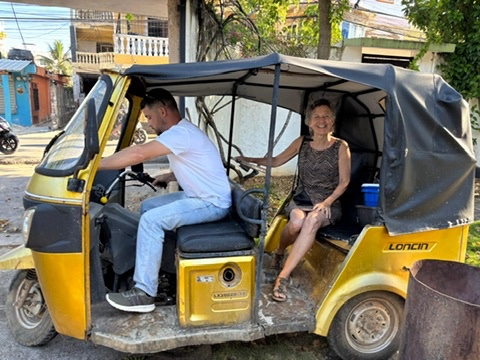
Orphans
However, all is not over in Port-au-Prince. Since mid-February, Kainos has welcomed 40 people who have taken refuge there – whereas the normal capacity is 15 people maximum. Jo and her team have had to find extra mattresses and adapt the facilities to meet this emergency situation.
The Centre Communautaire Espérance continues to open its doors every week to welcome families for a time of Bible teaching, sharing and a good hot meal. Each family also leaves with a food pack: essential support in these times of crisis.
We are edified to see their faith in persevering against all odds. They are destitute, but what a miracle it is that they can continue to function in these chaotic times. We can only encourage you to support them in this fight for life.
We also understand much better their strategic choice, to be based in the Dominican Republic, family safe, while Jonathan can go back and forth to Port-au-Prince. And after years of living behind walls, surrounded by barbed wire and rarely getting out, what a joy it is to be able to take and collect the children from the French school where they learn French, English and Spanish. And what a joy it is, too, to be able to go to the beach or out into the street in complete freedom. You’ve read between the lines; we’re proud of who they are and what they do in the precious name of Jesus Christ. We thank you for your prayers and precious support.
A phrase from Jonathan that stuck with us about Kainos: “The house can be destroyed, the walls can always be rebuilt, not the life”. Just writing it down and passing it on brings tears to my eyes…
Philippe
Together we savored moments of rare beauty. What grace and gratitude fill our hearts! It was also a time of celebration: the end of my treatment after 2 years and 3 months on Lynparza (Olaparib, a chemotherapy targeting hereditary predispositions). Yes, God is great and sovereign above all!
While we have breath on this earth, let us enter fully into what the Lord has prepared in advance for us. Not to change things in our own strength, but to be instruments through which others can be transformed in their hearts and reconciled with their Creator.
“God is our refuge and support, a help that never fails in times of trouble. Therefore we will fear nothing, even if the earth is turned upside down.” Psalm 46:2-3
“He is at our side, the Lord of the universe; he protects us with power, the God of Jacob.” Psalm 46:8
with love
Astrid

Haïti
For more informations or if you’d like to follow them:

IRIS PORT-AU-PRINCE
MISSION
Driven by God’s love, we want to stop for those in need and guide them to the Father.
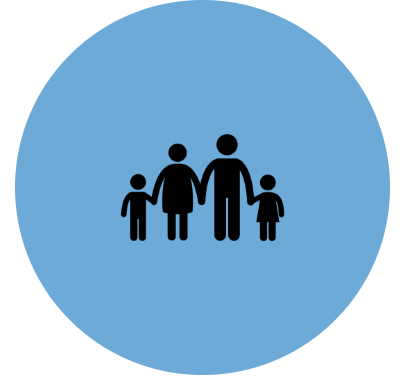
MISSION
- Family education
- Development
- Discipleship
- Emergency aid
KAINOS
Kainos is a family run place close to the airport of Port-au-Prince. It’s a place where we create jobs, empower, train, create and maintain an atmosphere of peace.
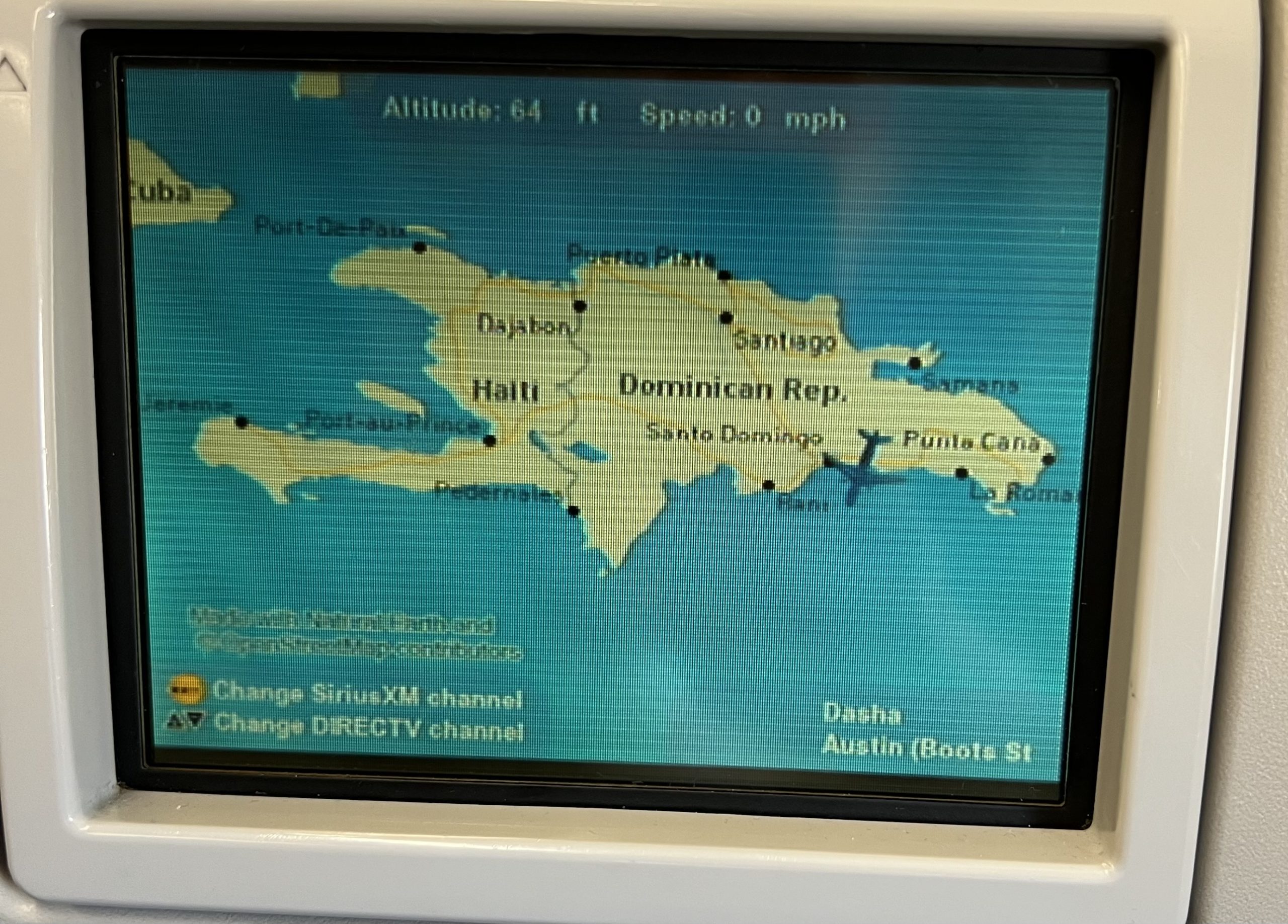
Why?
Some historical aspects: Dominican Republic and Haiti
A few thoughts
The island of Hispaniola is shared between two nations: the Dominican Republic, which occupies two-thirds of the territory, and Haiti, which lies on the remaining third. Despite their small size, the two countries have similar populations – around 11 million each.
read more
Today, many Haitians living in the Dominican Republic find themselves in a precarious situation. Since 2023, the Dominican authorities have suspended or severely restricted the renewal of visas and residence permits, even for those who have been in the country for decades. As a result, many live in fear of expulsion or harassment.
A past marked by injustice
Haiti’s population is largely descended from enslaved Africans, deported to the island by French colonists in the 17th century to work on sugar plantations. But before that, Haiti, then called “Ayiti”, was inhabited by the Taïnos, an indigenous people with a rich culture, decimated after colonization.
In the Dominican Republic, the majority of the population is descended from Spanish colonialists, with a mixed cultural heritage blending European, African and indigenous roots.
Independence at a high price
Haiti was the world’s first independent black republic, proclaiming its independence in 1804 after a revolution led by freed slaves. But this freedom came at an exorbitant price: To obtain diplomatic recognition from France after independence in 1804, Haiti was forced in 1825 to pay an indemnity of 150 million gold francs – a colossal sum for a young country. This debt, contracted under military threat, weighed heavily on the Haitian economy for over a century, until its final repayment in the early 2000s.
Subtly constructed economic dependence
Over time, Haiti became increasingly dependent on international aid. The United States, for example, massively imported unsold white rice and chicken scraps from the USA for free distribution on the Haitian market. As a result, local agriculture has been wiped out, making the country dependent on foreign imports.
Haiti has also become fertile ground for a “poverty market”. Haiti has a huge number of NGOs – sometimes as many as one for every 1,000 inhabitants. While some do essential work, others have unfortunately taken advantage of poverty to generate funding. Some orphanages, for example, take in children who still have parents, feeding a kind of “humanitarian market”.
The consequences of deforestation
The independence debt has had a major environmental impact. To repay it, Haiti had to exploit its forest resources on a massive scale, leading to catastrophic deforestation. In the absence of trees, torrential rains gradually washed away fertile soils, making agriculture increasingly difficult. Today, erosion, a more arid climate and lack of water further complicate the country’s situation.
Haitian labor indispensable in the Dominican Republic
Ironically, despite the tensions, many Dominican companies rely on the Haitian workforce, often renowned for their perseverance and discretion. Their role in the Dominican economy, particularly in construction, agriculture and services, is crucial.
But the history between the two countries is not without conflict. Haiti occupied the Dominican Republic from 1822 to 1844, a period still taught in Dominican schools and commemorated each year by an “Independence Day” in early March. This collective memory still fuels tensions and discrimination today.
What does the future hold for Haiti?
Can we really be surprised that the Haitian people are seeking to free themselves from these strangleholds and injustices? More than ever, they aspire to true independence, not only politically, but also economically and socially.
We have learned to love this country. Let us pray for this country, its people and its leaders.
Astrid's first visit to the DR in 2021
I’ve had a deep sense of hope ever since I was able to work with a team in the Dominican Republic. And I can’t help but make a connection.
find out more
Over the course of 1 week, we spoke to leaders from the Dominican Republic’s 8 spheres of influence.
With this special delegation, we launched a strategic project for transformational leadership development at national level, entitled Dominicana se transforma. The aim is to reach up to 250,000 members of the Dominican population by equipping them with values-based principles (Values Journey) that they can learn, live and pass on in their social and professional environments.
Find out more:
https://humanvalues.global/transformation-dominican-republic/
